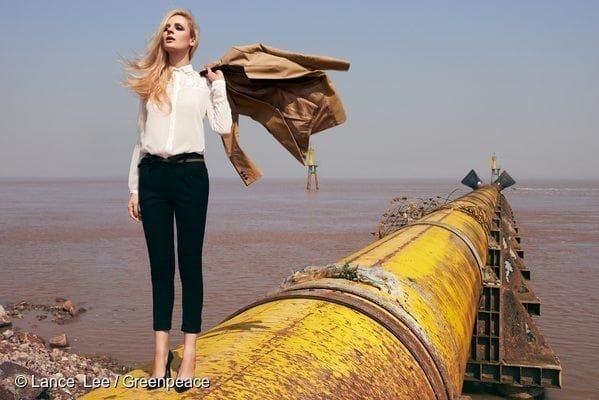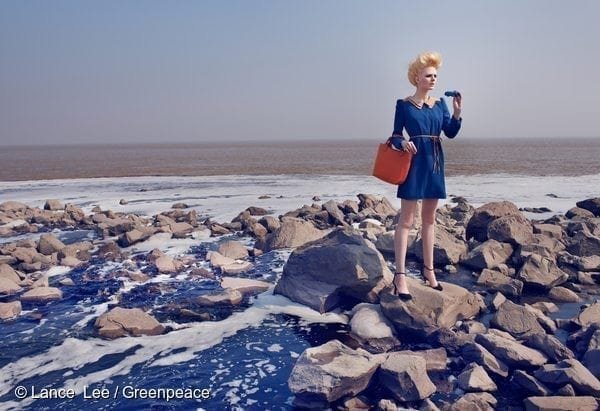Tesco, one of the world’s largest retailers, has announced it will immediately begin the process of eliminating hazardous chemicals from the supply chain of its garment brand F&F, sold in 2,300 stores trading out of 23 different countries, and release a complete list of its suppliers.
80 brands detoxed
Together with Tesco, 80 international brands and suppliers have committed to the Greenpeace Detox campaign to become toxics-free. Detox-committed companies now represent 15% of the worldwide textile production.
UK-based Tesco joins a group of five German-based international retailers including Aldi and Lidl that signed the Detox-Commitment two years ago.
‘The Detox standard is the new industry baseline – in only six years, forerunners of the textile sector went from total denial and opacity of their supply chain to transparency and the banning of all hazardous chemicals. Tesco’s commitment shows the rest of the industry that using hazardous chemicals is not an option anymore.’
KIRSTEN BRODDE
Project lead of the Detox campaign, Greenpeace Germany
Closing the loop
Tesco’s commitment coincides with the release of Greenpeace’s report How seriously are retailers taking responsible fashion?, the second assessment on how far retailers have implemented tools and actions to eliminate hazardous chemicals. All companies have made good progress in their chemical management and transparency.
The Greenpeace Germany report also evaluates for the first time whether companies are challenging their high volume business model of cheap throwaway fashion via ‘slowing and closing the loop’, meaning measures that reduce the speed of changes in product lines and lead to a broader selection of long-lasting and recyclable garments and shoes.
Reducing overall production and consumption would save precious natural resources and have a greater impact than solitary measures such as chemical management or recycling. Measures need to involve product design, the use of sustainable materials, increased product lifetimes, recycling and communication with customers on sustainable consumption.
Slowing down fast fashion
While four out of five companies have taken initial steps to implement take-back programmes for used clothes, started integrating the use of organic cotton or piloting fully recyclable products, other strategies included in their commitments are still missing exact objectives.
Only one of the assessed companies named, Tchibo, has developed a comprehensive product life cycle strategy from design to take-back, laying the foundation for consumers to buy better, long-lasting products less often.
‘Fashion brands and retailers should take measures to slow down their production and achieve full recyclability of their products equally serious than their chemical management. We need companies to foster a radical change in the way fashion is produced, marketed and consumed in the future, with warranties, repair services or sharing economy concepts, like leasing or lending. We believe Detox-committed brands could lead this change in the industry.’
KIRSTEN BRODDE
Project lead of the Detox campaign, Greenpeace Germany
 Play Video about This Rock Might Just Save The World
Play Video about This Rock Might Just Save The World Play Video about Play 2 hours of rock
Play Video about Play 2 hours of rock Play Video about Play 2 hours of brook
Play Video about Play 2 hours of brook Play Video about Play 2 hours of sheep
Play Video about Play 2 hours of sheep
















































